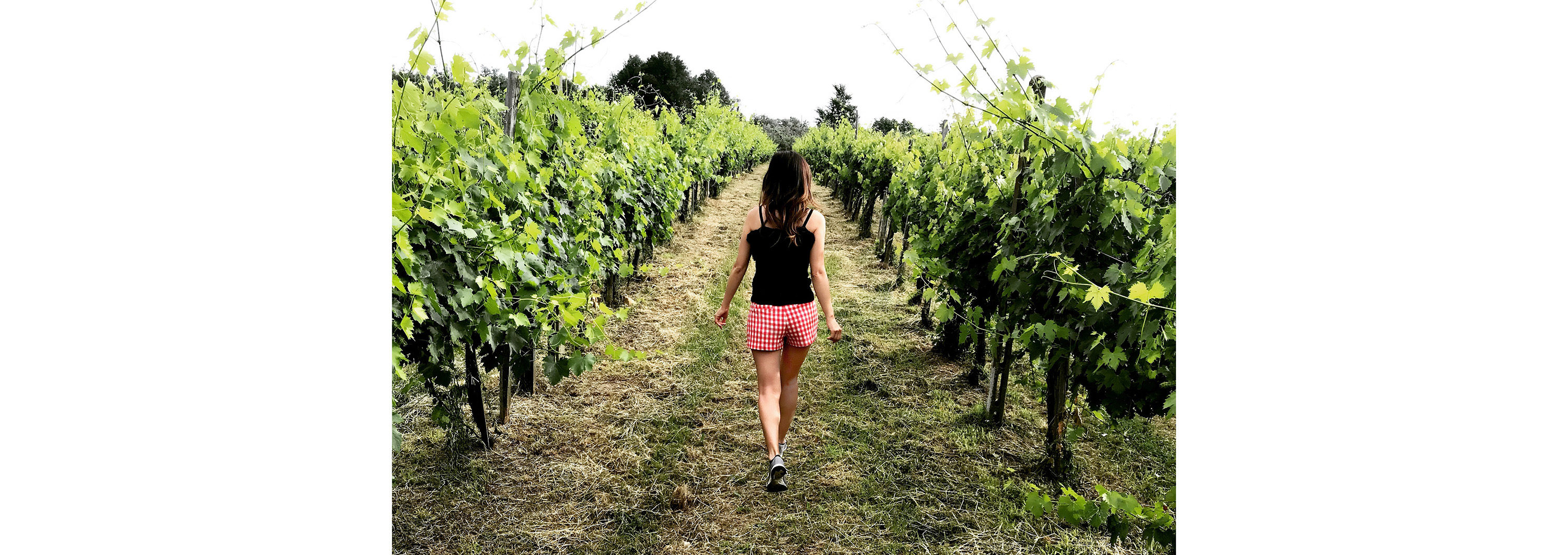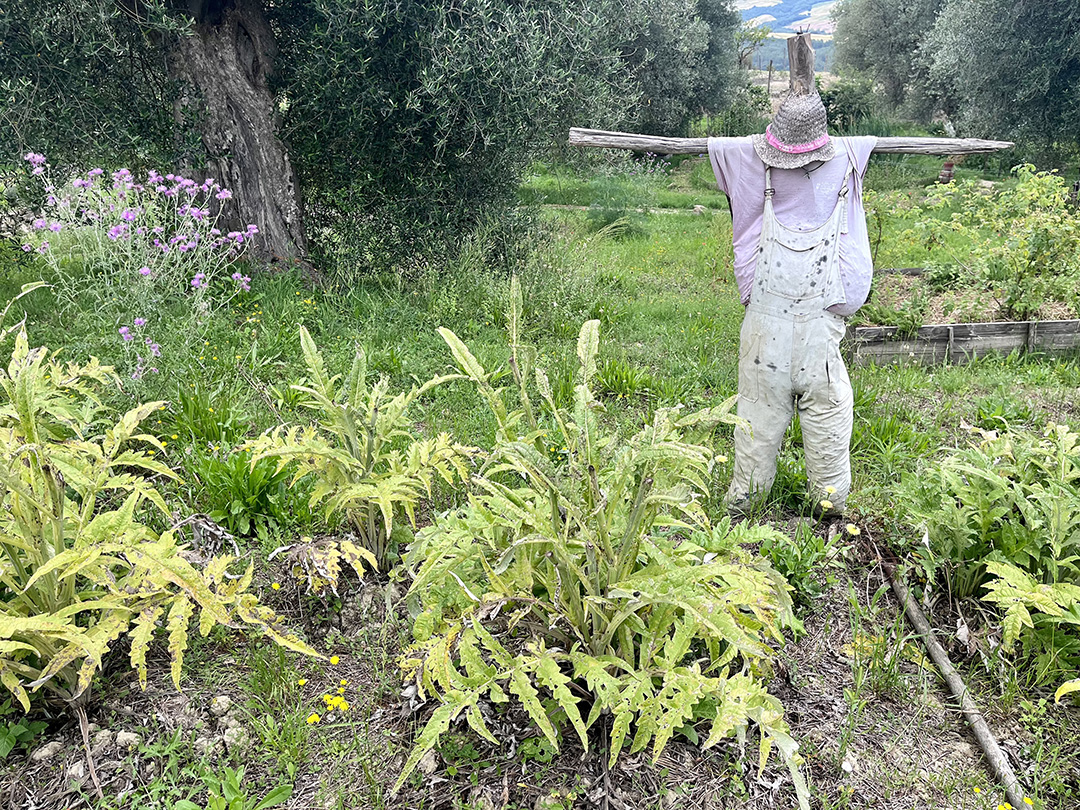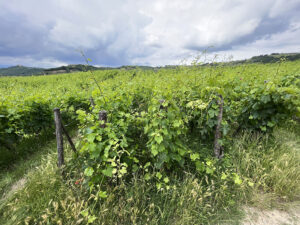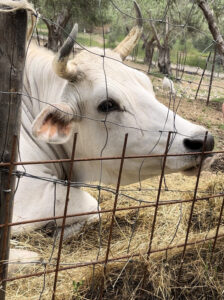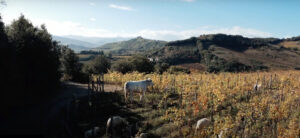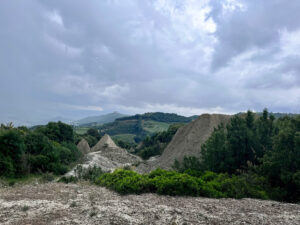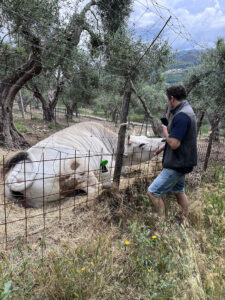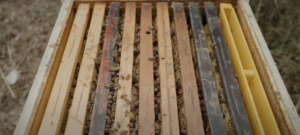“We’re more focused on the richness of life,” says Sebastian Nasello, CEO and winemaker at Podere Le Ripi.
Situated at the end of a long and gravely dirt road near the village of Castenuovo dell’Abate just south of Montalcino, Podere Le Ripi is more than a biodynamic winery and farm; it’s its own ecosystem.
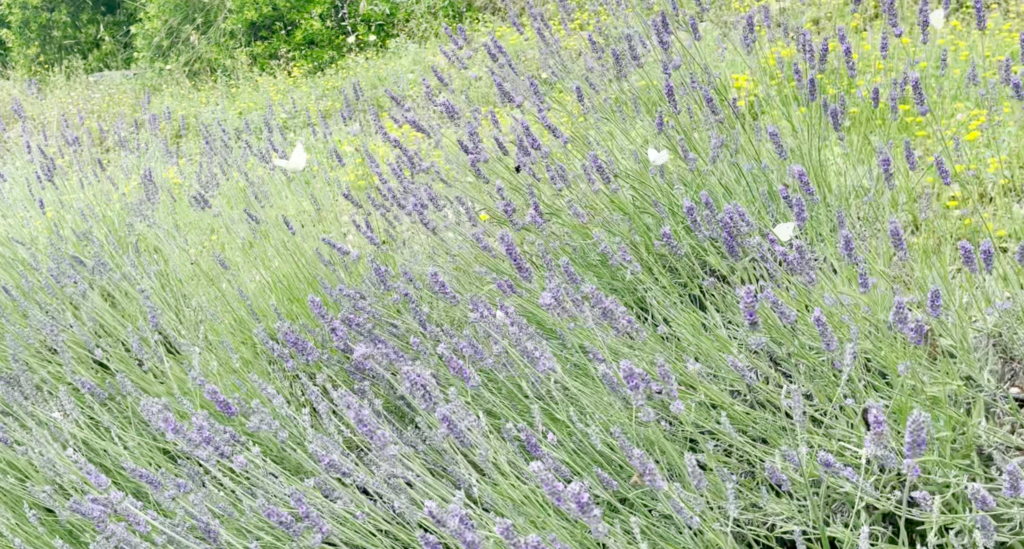
A thick row of lavender hosts dancing winged pollinators – bumble bees, honey bees and paper-white butterflies. Swallows fly about in response to the impending storm. Ducks and geese are squawking, the rooster crowing. Patches of Sangiovese vines grow amid a sea of forest. Life in the soil beneath this earth is guaranteed to be abundant and thriving.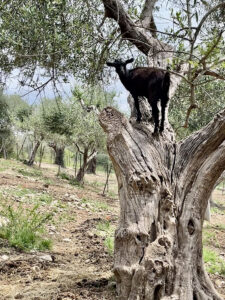
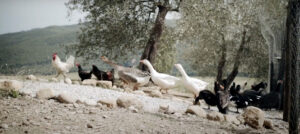
Podere Le Ripi, whose innovative approach to land management (think: their Sangiovese “Bonzai” vineyard is 65,500 vines per hectare (yes!) resulting the deepest vine roots in the world – that’s a different story), is dialing back their ways and looking to nature to preserve their small chunk of the universe and promote vital resources.
“Good wines can come only from healthy vines, and the healthiness of the vine is linked to the healthiness of the place,” says Nasello. Podere Le Ripi produces wines from fruit that are grown from both the east and west sides of Montalcino. The intention is to offer wines that are pure reflections of the vintage and geological areas.
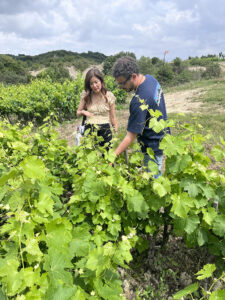
Yet, while keeping wine as their core business, Podere Le Ripi engages in something more ambitious and complex, as their farm strives to balance and nurture all relationships between all living things, including their people.
Podere Le Ripi has 30 young dedicated individuals committed to making great wines all while respecting and rebuilding nature’s beauty that is often overlooked these days. It takes a lot of hands and manual labor to run a farm.
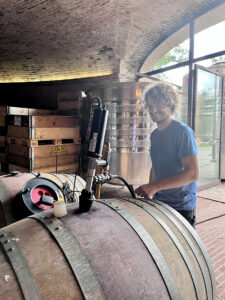
When Nasello joined Podere Le Ripi in 2011, the company had five people, including founder Francesco Illy (of the coffee empire), who is very hands-on, believed in organics, and energized by viticulture. Nasello’s arrival marked the beginning of a new cycle of wine production that took the farm further, adding biodynamic principles to their 34 hectares of vineyards, while adding honey and olive oil production, vegetable gardens, and animals to their world.
And then there is Irina, their Chianina cow, a Tuscan native herself, she grew up on the farm and is very much a part of the Podere Le Ripi family and instrumental in biodynamic preparations. She, her goat, sheep, and mule friends can enjoy a jaunt in the vineyards at certain times of the year.
“People think biodynamics is strange, but it’s a reasonable farming technique. It just uses knowledge and sensitivity. There no rules,” says Nasello. ” It must be tailored because every environment is different.”
For example, he explained how in Castelnuovo dell’Abate, the soils have a very high clay and silt content. With oceanic origins, the soils are rich in limestone, with high pH and in sometimes strong salinity. This kind of terroir gives wines a tangible depth and layering, but it requires a light human hand due to its exuberant nature.
“We started with cover crop, biodynamic preparation, added animals, and now the bees – over 100 bee houses. Whatever we do focuses on life and adds something.”
Podere Le Ripi’s respect towards nature, keeping their ecosystem chemical-free, while helping creatures thrive on their land, reminds us that Tuscan beauty doesn’t just exist because it’s been waiting for us. It was borrowed from a time before and with their help, will be there for future generations.
“We try to preserve this beauty and life and give birth to something typical with a great sense of place.”
Now, taste the wines.
And visit.
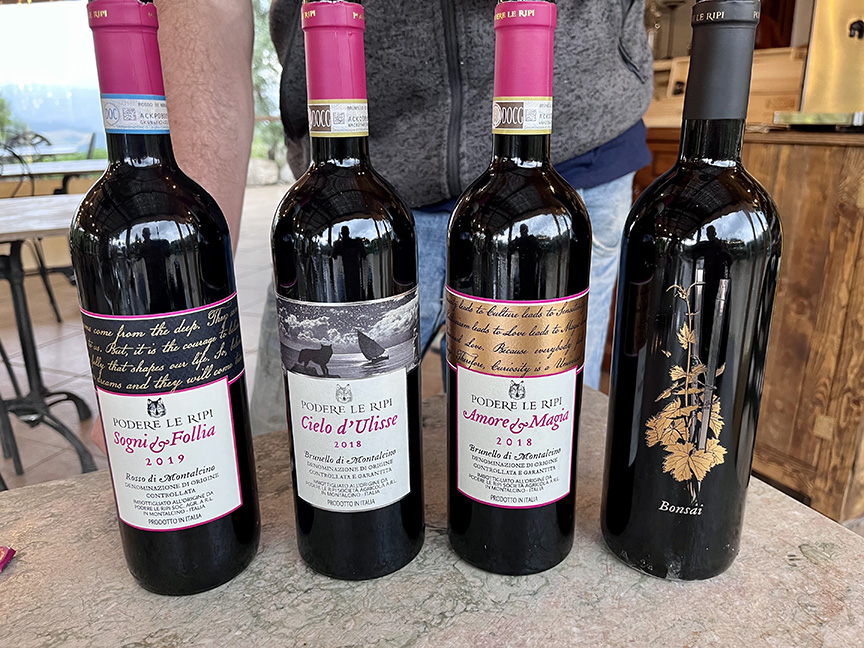
Select photos: Courtesy of Podere Le Ripi
